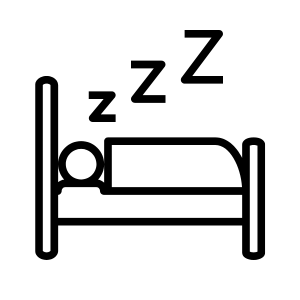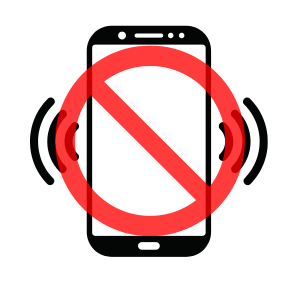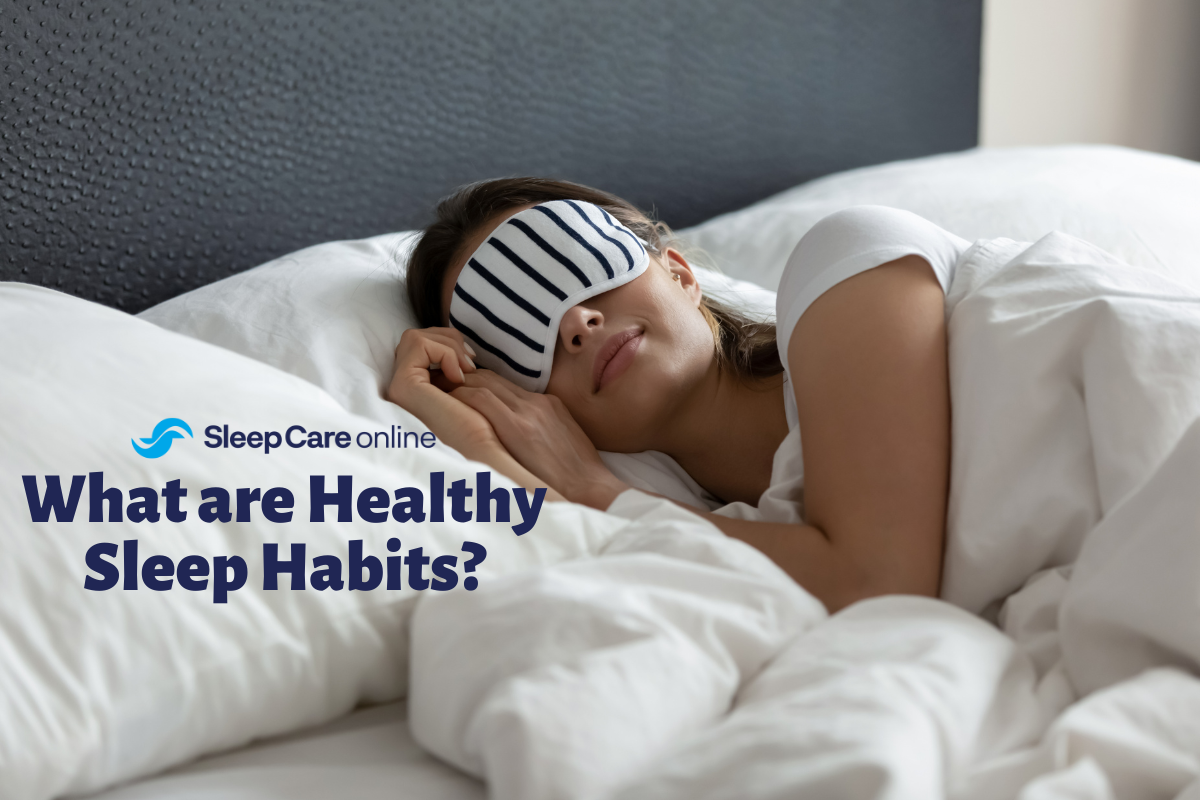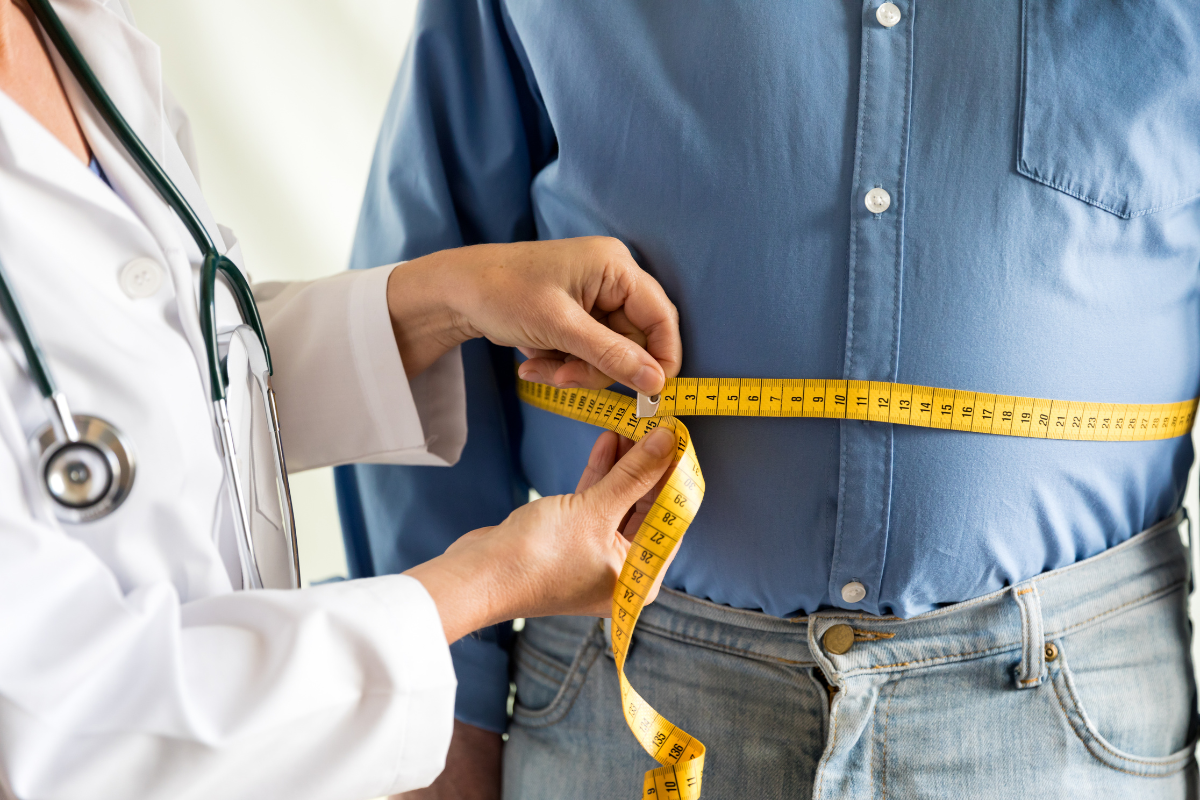While we think of teenagers as being full of energy and not needing much sleep, many adolescents may be sleep deprived. Changing social behaviors and simple biology may all factor into sleep deprivation. Often social obligations drive teenagers to pass on sleep. Yet staying awake for extended periods and losing sleep because of anxiety can make a teenager as sleep-deprived as an adult. Understanding the causes of teen sleep deprivation and how to prevent it can help parents ensure healthy sleep for their k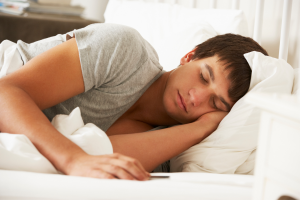
Sleep Deprivation – How Much Sleep Do Teens Need?
Most adolescents only get about 6.5 – 7.5 hours of sleep per night, and some get less. Sleep research suggests that a teenager needs between eight and 10 hours of sleep every night. This is more than the amount a child or an adult needs. Why do teens need so much sleep?
Teenagers need more sleep because their bodies and minds are growing quickly. Scientific research shows that many teens do not get enough sleep. Although getting enough sleep may not seem that big a deal to most teens, those who don’t get enough sleep and are overtired are more likely to:
- Struggle in school
- Have trouble with memory, concentration, and motivation (the desire to accomplish a goal)
- Be involved in car crashes and other accidents. Sleepiness (the feeling of wanting or needing to sleep in places and at times when you shouldn’t) affects reaction times
- Feel depressed, which can become a serious medical condition
Importance of Sleep for Teens
For Academic Appraisal
The educational development of teens is directly tied to sleep health. Poor sleep may leave teens struggling academically. Studies investigating the effects of different sleep-wake schedules on academic achievement showed that impaired sleep quality and quantity are associated with decreased learning ability and compromised daytime functioning.
Essentially poor sleep equals poor grades for teenagers. When teens are working their hardest to achieve academic excellence, sleep deprivation may be a roadblock.
Emotional Well-Being
With hormones raging, teens are already in a sensitive place emotionally at their age. But sleep deprivation makes it worse. Feelings of depression and anxiety can be amplified by sleep deprivation. Often teens may be prescribed medications to manage mental health symptoms when a good night’s sleep would have sufficed.
Poor sleep affects mental health by disrupting our circadian rhythms and interfering with our normal sleep stages, thereby throwing our bodies and our brains off-kilter. A sleep-deficient brain has a decreased ability to make emotional judgments and to incorporate multiple pieces of information into a decision.
Physical Growth and Development
Sleep, especially deep sleep, is important for teens’ physical and mental health. Deep sleep or slow-wave sleep is a stage in the sleep cycle that promotes the healing of the body and mind from waking life and releases essential growth hormones beneficial to teen development. The loss of good sleep may result in early poor health and a reduction of growth hormones at a time when teens need them most.
Bad Decision Making
While we may think that immaturity in teens may make them prone to poor decisions, lack of sleep may make decision-making even worse. Consistent lack of sleep can lead to impaired judgment and poor decision-making skills. Studies have shown sleep loss over an extended period can cause decreased cognitive performance, leading to the inability to make sound judgments. Teens may find it harder to recall information and crave junk foods simply from lack of sleep.
Prone to Accidents and Injuries
Most teens are just learning to drive, and inexperienced drivers make parents nervous. But a teen who is sleep deprived has an increased risk. Sleep deprivation can impair cognitive functioning just like being impaired by alcohol.
Teens with sleep deprivation may be prone to traffic accidents and more. If they are involved in athletics, they may be prone to more sports-related injuries. Lost sleep makes you less capable of responding effectively to any situation, which can result in mishaps.
Causes Sleep Deprivation in Teens
Hormonal Changes with Respect to Time
Teens are going through many hormonal changes which may disrupt normal sleep patterns. Teen sleep problems can begin long before they turn 13. The sleep habits and changing bodies of 10 to 12-year-olds have a close link to the teen years. The sleep patterns of teens are also firmly set in their lives. It is not easy for them to change the way they sleep. Thus, teen sleep problems can continue well into their years as adults.
Exposure to Blue Light
Time spent by teens watching TV and on computers and smartphones can impact healthy sleep. Blue light radiation from these electronic devices triggers the brain to stay alert as if it is daytime even in the middle of the night. Exposure to blue light can leave teens restless and sleepless and not knowing why. Blue light devices are so much a part of our lives we never realize that they affect our sleep. Teens should avoid exposure to blue light devices for at least a few hours before going to sleep.
Overuse of Electronic Gadgets
Along with the presence of blue light, electronic device use itself can impact healthy sleep. Teens can spend hours on video games trying to reach that next high score. They can surf the internet well into the night and chat with friends on their smartphones constantly. While all these habits seem normal for modern teens, these electronic gadgets are stealing precious time away from healthy sleep.
Putting a limit on electronic gadget use may seem daunting for parents but setting time aside for sleep is essential for health.
Overuse Of Social Media
Teens spend more and more time on social media. The obsession can often lead to sleepless nights. Worrying about a ping or a “like” can leave teens feeling anxious and even depressed. Overuse of social media can deprive teens of the healthy sleep they need. Limiting social media use can be a difficult ask for parents but is essential if they want teens to sleep well. Talking to your teens about social media and how it can impact sleep may make an impact on them and their decision to use social media wisely.
Sleep Disorder
Many teens may in fact may be suffering from a sleep disorder. While teen life is full of distractions and stresses including electronics school and friends, those factors may not entirely be the root of sleep deprivation. Sleep apnea and insomnia are some of the most common sleep disorders and are prevalent in teens. Diagnosing and treating sleep disorders in teens is the first step to helping them live healthy lives.
If you suspect your teen is struggling to get good enough sleep, and they’re constantly waking up feeling sleep deprived or have other symptoms from lack of sleep, Sleep Care Online is the solution for you/your teen. We are a simple and convenient way for people to be tested for sleep disorders like sleep apnea from the comfort of their own homes. Have your child take a free risk assessment to get started toward a proper diagnosis of your sleep disorder.
Effects Of Teenage Sleep Deprivation
Sleep deprivation increases the likelihood that teens will suffer myriad negative consequences, including an inability to concentrate, poor grades, drowsy-driving incidents, anxiety, depression, thoughts of suicide, and even suicide attempts. It’s a problem that knows no economic boundaries.
While studies show that both adults and teens in industrialized nations are becoming more sleep-deprived, the problem is most acute among teens. In a detailed 2014 report, the American Academy of Pediatrics called the problem of tired teens a public health epidemic.
Social and cultural factors, as well as the advent of technology, all have collided with the biology of the adolescent to prevent teens from getting enough rest. Since the early 1990s, it’s been established that teens have a biological tendency to go to sleep later — as much as two hours later — than their younger counterparts.
Yet when they enter their high school years, they find themselves at schools that typically start the day at a relatively early hour. So. their time for sleep is compressed, and many are jolted out of bed before they are physically or mentally ready. In the process, they not only lose precious hours of rest but their natural rhythm is disrupted, as they are being robbed of the dream-rich, rapid-eye-movement stage of sleep, some of the deepest, most productive sleep time.
Additional Factors for Teenage Sleep Deprivation
Researchers noticed that as kids got older, they were naturally inclined to go to bed later. Teens experience a so-called sleep-phase delay. Their circadian rhythm — their internal biological clock — shifts to a later time, making it more difficult for them to fall asleep before 11 p.m.
Teens are also biologically disposed to a later sleep time because of a shift in the system that governs the natural sleep-wake cycle. Among older teens, the push to fall asleep builds more slowly during the day, signaling them to be more alert in the evening.
How Can Teenagers Sleep Better?
 Make A Checklist or Routine
Make A Checklist or Routine
A consistent sleep schedule is key to healthy sleep. Make a checklist that helps you stay on track for going to bed at the same time every night. Whatever your teen’s pre-bedtime routine might be, follow it to help notify your body that bedtime is near.
Maybe reading a book, listening to soothing music, or meditating can be used to help a teen prepare for sleep. That routine can help them stay aligned with a healthy sleep schedule.
 Take Naps During the Afternoon
Take Naps During the Afternoon
While taking naps is normally not a good idea when battling sleep deprivation, for teens it is a solution. Because teens need extra hours of sleep, they can make up sleep time with naps. A nap during the day can leave a teen feeling refreshed and rejuvenated and does not interfere with their nighttime sleep schedule.
Just make sure the naps are short. Long naps that last more than 15 minutes to half an hour take too much time away from nighttime sleep and may leave a teen awake all night.
 Wake Up Early in The Morning
Wake Up Early in The Morning
Early risers have better sleep. Whether it be adults or teens, getting up early in the morning gets your day started sooner, which means you are more prepared for sleep at night. Late risers have excess energy and may stay up well into the night. Once they fall into that cycle, it is difficult to establish a normal, healthy sleep pattern. Start early and go to bed according to your sleep schedule to feel better every day.
 Indulge In Co-Curricular Activities
Indulge In Co-Curricular Activities
Activities during the day are a great way for teens to use up excess energy. Too much anxiety and energy at night keep them up. Sports or clubs at school can keep them occupied so they can sleep well when bedtime rolls around. A busy schedule is one of the best ways to help teens cope with hormonal changes and social life. Co-curricular activities help kids stay engaged with other kids in healthy activities that promote good sleep.
 Indulge in Making Connections While Going Outside
Indulge in Making Connections While Going Outside
Social media and electronic devices these days can only make teens feel isolated and alone. They may spend more time engaging in a chat than chatting with friends. These behaviors can lead to a cycle of sleepless nights engaging with the internet rather than real people.
Encouraging teens to socialize with friends and engage in activities outside the home and away from Facebook are healthy habits that help prevent sleep deprivation from becoming a problem.
 Avoid Using Electronic Gadgets Before Going to Bed
Avoid Using Electronic Gadgets Before Going to Bed
As bedtime rolls around, electronic gadgets should be put away. It can be difficult for teens to stop engaging with friends on social media or searching the internet for info about pop icons, but electronic devices deprive most teens of sleep by keeping them overly alert and awake for hours. Teens can spend hours on electronic devices, not realizing how much time is lost and how much sleep is lost. Limiting screen time is one of the best ways to promote healthy sleep in teens.
 Avoid Frequent Changes in Your Sleep Schedule
Avoid Frequent Changes in Your Sleep Schedule
While teens are growing toward adulthood and may find a sleep schedule childish, parents can remind them that erratic sleep schedules can impact their health and life. If you question your teen about feelings of grogginess or drowsiness during the day even though they feel they have slept all night, you can help them realize that a crazy sleep schedule is not healthy or beneficial to them.
Sleep schedules do not have to be rigid. Following patterns that work well for teens and sticking to those patterns works best.
Tips For Parents To Prevent Sleep Deprivation In Teenagers
- Take their cellphone away before bed
- Limit their caffeine intake
- Do not let them eat junk food a few hours before bed
- Make sure all their homework is completed
- Encourage a bedtime routine
Additional Tips on Managing Teenage Sleep Deprivation
Most teens are focused on social life and may not see sleep as a big deal in their lives. It’s important to help teens realize that sleep is affecting them. Let them know that any symptoms of sleep deprivation are not a joke and can be impacting their health. Ask them to simply try out a sleep schedule for a few days and see if they feel better in the morning. They may thank you for it.




